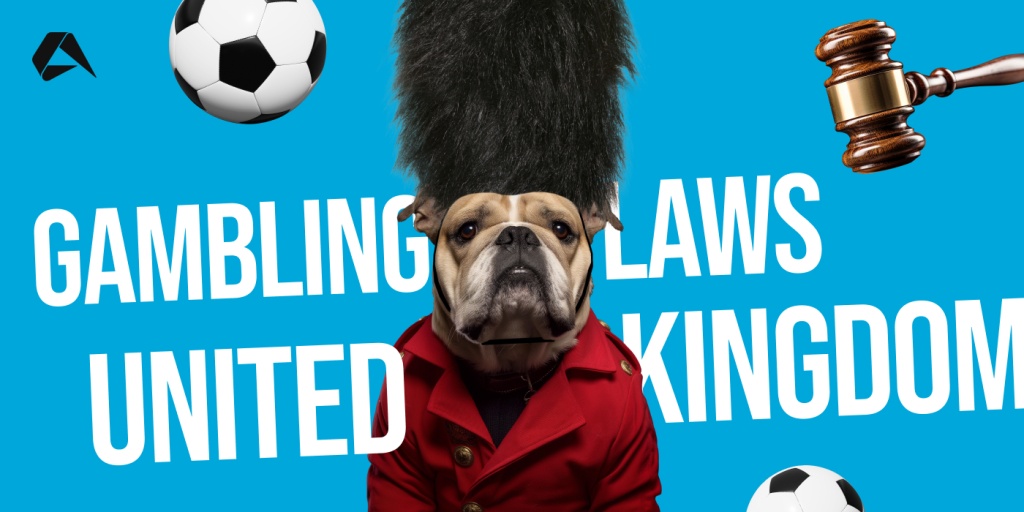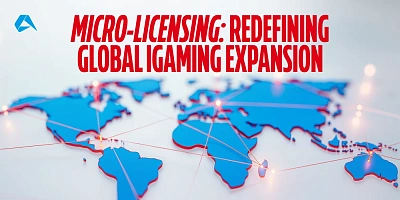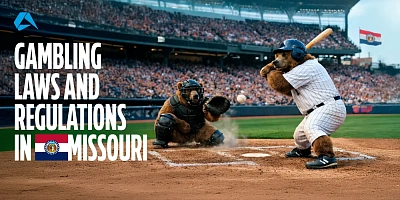Overview Gambling Laws in the UK - All You Need to Know About Regulation and Legality in 2024
The UK's gambling sector is governed by stringent laws, making UK Gambling Commission (UKGC) licensed platforms among the most trusted in the industry. Evolving from 17th-century popularity and 19th-century regulation attempts, significant liberalisation began with the 1994 National Lottery, culminating in the 2005 Gambling Act and the establishment of the UKGC. By 2014, a UKGC licence became mandatory for operators serving UK residents.
Today, the legal landscape in 2024 sees gambling widely accepted, underpinned by robust measures against illegal practices and for responsible engagement. The UKGC acts as the primary regulatory body, overseeing licensing, fair play, consumer protection, and anti-money laundering (AML) standards. Other key regulators include the Advertising Standards Authority (ASA) for marketing compliance and the Financial Conduct Authority (FCA) for financial transactions.
Obtaining a UKGC licence requires meeting stringent criteria, including clear identity and ownership, financial stability, criminal checks, robust AML compliance, customer fund protection, and demonstrable fairness of software and games. Operators must also implement responsible gambling measures, such as self-exclusion tools and deposit limits, and adhere to strict advertising rules. While initial application and annual fees vary based on gross gambling yield (GGY), and taxes like the Point of Consumption (POC) Tax apply, a UKGC licence provides legal access to a lucrative market (estimated £14.5 billion GGY in 2024). It significantly enhances an operator's credibility, trustworthiness, and facilitates strategic partnerships, offering a competitive edge despite demanding compliance efforts and higher costs compared to other jurisdictions. The application process can take approximately 16 weeks.
Gambling laws in the United Kingdom are stringent, which is why iGaming platforms that hold a UKGC licence are considered among the most trusted options in the industry. However, depending on the games and products offered, alongside business aims, there may be better options for your business.
This article provides insight into UK gambling law and compliance, the pros and cons of a UKGC licence, how to apply, and details of the fastest and most cost-efficient way to access one of the world's most engaged and diverse gambling markets.
The Evolution of Gambling Law in the United Kingdom
Gambling has been a popular activity among the general population and nobles since the 17th century, when horse racing became the sport of kings, referring to Prince Charles II’s enduring passion for racing and gambling. Frost fairs would occur on the icy River Thames, where wagers were placed on tables by the general public, and dice games, card games, and primitive lotteries were common in city streets. By the turn of the century, Harry Ogden was credited to be the first person to offer odds on horses, setting the stage for the modern bookmaking system in 1790.
The 18th and 19th centuries, however, saw an increased drive to regulate gambling and address its social repercussions, primarily relating to debt and poverty. Initial legislative attempts were made in 1845 and 1853 when acts were passed to make all gambling contracts unenforceable by law. While this was effective among high society, the acts had limited effect on the working class. The Street Betting Act of 1906 aimed to address this issue by making betting a criminal offence, yet demand persisted, leading to the spread of illicit betting shops and underground rings throughout the country.
The government’s response, notably the Betting and Lotteries Act of 1934 and the Betting and Gaming Act of 1960, acknowledged this enduring appetite for gambling by legalising off-course betting, betting shops, casinos and bingo halls, albeit under strict regulation. The creation of the National Lottery in 1994 was another major milestone, marking the start of full liberalisation and regulation, with the lottery enjoying widespread public participation and acceptance.
This movement continued into the early 20th century with the creation of the United Kingdom Gambling Commission in 2005, aimed at regulating and modernising the entire industry. By 2014, gambling operators in the UK needed a UKGC gambling licence to offer gambling products and services to residents in the UK, regardless of location. In recent years, the commission has introduced measures to protect young and vulnerable groups and enhance public safety.
Here’s a timeline that illustrates the steps taken by UK authorities to regulate gambling and its transition from restrictive policies to a more liberalised and regulated approach.
1845 and 1853: Gaming Acts to curb and control gambling.
1906: Creation of the Street Betting Act.
1934: Betting and Lotteries Act legalising betting activities.
1960: The Betting and Gaming Act legalising gambling venues.
1968: Gaming Act imposing stricter licensing requirements.
2005: Creation of the United Kingdom Gambling Commission.
2014: Remote Gambling Act regulating online operators.
2020 and 2021: Introduction of age and safety verification.
Current Legal Landscape in 2024
Today, gambling is widely accepted as a mainstream leisure activity in the UK, with a wealth of options ranging from online betting to traditional race tracks, bingo halls and casinos. The public appetite for gambling is protected by a mature industry with robust measures in place that criminalise illegal gambling practices and promote responsible gambling initiatives.
The legal framework is anchored by the Gambling Act 2005 and governed by the UK Gambling Commission (UKGC). This framework ensures that gambling operations are conducted fairly and transparently while emphasising responsible gambling practices. Online operators must implement advanced customer verification processes and tools that allow for self-exclusion and limits on spending. Additionally, using credit cards for gambling transactions is prohibited across all platforms.
Furthermore, advertising regulations have also been tightened to ensure advertisements inform consumers about the risks of gambling and do not target high-risk members of society. In short, the UK's approach to gambling legislation is comprehensive, aiming to balance economic benefits with the welfare of society at large. This mature environment mandates that operators maintain high standards of integrity and responsibility.
Regulations and Compliance for Online Gaming Operators
In the UK, iGaming operators must adhere to stringent regulations set forth by the Gambling Commission to offer gambling products and services legally. The rules and regulations are as follows:
Licensing: Obtain a licence from the UK Gambling Commission. This requires meeting criteria for protecting consumer funds, fair gaming practices, financial stability, and money laundering prevention (AML).
Protection: Provide age and identity verification processes to prevent underage gambling. Player checks must be conducted before customers can deposit funds and engage in real-money gambling activities.
Responsibility: Implement measures promoting responsible gambling. This includes providing self-exclusion tools, setting deposit limits, and ensuring that information on responsible gambling practices is easily accessible to players.
Advertising: Ensure marketing materials comply with the guidelines of the Advertising Standards Authority (ASA). Advertisements must not target children or vulnerable people and mislead individuals about the risks of gambling.
Financial: Adhere to anti-money laundering (AML) laws and report suspicious betting patterns. Regular audits and transparency in financial transactions are mandatory.
Criteria for Obtaining a UKGC Gambling Licence
To obtain a gambling licence from the UK Gambling Commission (UKGC), an iGaming operator must meet stringent criteria to safeguard compliance with the highest legal, safety, and fairness standards. Only those operators who meet the following criteria will be granted access to operate in the UK market.
1. Identity and Ownership - Operators must provide clear and transparent information about their identity, including who owns and manages the company.
2. Business Location - Depending on the licence type applied for, businesses must be UK-based or at least have a registered UK address.
3. Criminality Checks - Thorough checks are conducted to ensure the company and key personnel do not have criminal backgrounds.
4. Financial Stability - Operators must demonstrate their financial stability, integrity, and ability to cover player winnings.
5. AML Compliance - Operators must undergo risk assessments to ensure measures are in place to prevent money laundering and terrorist financing.
6. Customer Fund Protection - Operators must have measures in place to protect customer funds in case of insolvency.
7. Integrity and Competence - The integrity and competence of management are assessed to ensure no previous gambling violations.
8. Software and Game Fairness - Operators must demonstrate that their gaming software is fair and transparent through third-party testing and certification.
9. Technical Standards - Operators must demonstrate adherence to technical standards with measures in place to protect data privacy and transaction security.
10. Responsible Gambling Measures - Operators must have robust policies for responsible gambling and measures to prevent problem gambling in place.
11. Advertising and Marketing - Operators must ensure advertisements and promotional offers are clear, truthful, and not misleading.
Licencing Fees and Taxes
To obtain and maintain a gambling licence, iGaming operators are subject to specific fees and taxes.
Licence Application Fees
The initial application submission cost does not include the annual fees required to maintain the licence once granted. Prospective licensees should review the latest information directly from the UK Gambling Commission's official website or documentation, as these fees are subject to updates and changes.
The application fees for a UK Gambling Commission (UKGC) gambling licence vary widely depending on the type of gambling operation and the specific licence category. Here’s a general guide:
Remote Gambling Licences
Operators with GGY < £550,000 = approx. £2,640
Operators with GGY > £1 billion = approx. £57,304
Non-Remote Gambling Licences (land-based)
Starts at £5,341 for small casinos and increases based on GGY
Software Licences
Gambling software providers with GGY < £550,000 = approx. £3,719
Gambling software providers with GGY > £100m = approx. £24,905
Licence Annual Fees
Annual fees cover compliance activities, monitoring, and enforcement costs, all of which help ensure the gambling market operates fairly and safely. Operators should check the UK Gambling Commission's fee calculator and schedule regularly, as these fees are subject to updates and can change.
Remote Gambling Licences
Small Operators with GGY < £550,000 = approx. £2,604
Operators with GGY > £5m = approx. £157,753
Non-Remote Gambling Licences (land-based)
Starts at £5,341 for small casinos and increases based on GGY
Betting Operation Licences
Betting shops - starts at £2,709 for one physical premise
Remote Betting - GGY < £550,000 = approx. £2,709 to GGY > £100m = approx. £409,267
Point of Consumption Tax (POC)
In the UK, gambling tax is charged as a percentage of profits, irrespective of the provider’s location. General measures for Double taxation relief (DTR) will be introduced for General Betting Duty (GBD), Remote Gaming Duty (RGD) and Pool Betting Duty (PBD).
Profits are calculated as stakes received less winnings paid out (to and from UK citizens where appropriate).
Operators must register with HMRC and pay one or more of the following taxes if betting and gaming activities within or outside the UK:
General Betting Duty (GBD)
15% for fixed odds and totalisator bets
3% for financial spread bets
10% for all other spread bets
15% of the commission charges charged by betting exchanges to users who are UK people
Pool Betting Duty (PBD)
15%
Remote Gaming Duty (RGD)
15% before 1 April 2019
21% on or after 1 April 2019
If you supply remote gambling that does not involve spread betting to customers who do not usually live in the UK, you are not liable for these taxes on those transactions.
Other Taxes
Operators typically face other financial obligations, including standard corporation tax and VAT where applicable, though gambling activities are generally exempt from VAT in the UK.
Regulatory Bodies for Online Gambling
Several bodies are responsible for creating and regulating gambling laws and regulations in the UK. iGaming operators will likely only deal with a few of them on a national level. Land-based gambling establishments like betting shops and casinos may also need to comply with councils and licensing boards on a local level regarding the issuance of licences.
United Kingdom Gambling Commission (UKGC)
Established under the Gambling Act 2005, the UK Gambling Commission is the primary regulatory body for gambling and supervisory authority over gaming law in the UK. The Commission plays a central role in regulating the online gambling sector. It oversees the issuance of operator licences, ensuring that iGaming operators demonstrate adherence to fair play, consumer protection, and anti-money laundering (AML) standards. It rigorously enforces compliance through continuous oversight and has the authority to impose sanctions, fines, or revoke licences for non-compliance.
Advertising Standards Authority (ASA)
The ASA is responsible for regulating advertising standards across the UK, including gambling advertisements. It ensures that advertising is fair, transparent, and non-misleading, protecting vulnerable groups and under-18s from harm relating to gambling activities. iGaming marketers must adhere to ASA's codes, which mandate that advertisements must not link gambling to financial success, seduction, or enhanced attractiveness. Furthermore, the ASA actively monitors compliance and can issue penalties, demand retractions where necessary, and enforce amendments to non-compliant adverts.
Financial Conduct Authority (FCA)
While not directly involved in regulating gambling activities, the FCA regulates financial and payment services used by gambling operators, ensuring secure and lawful transactions. The FCA mandates that operators have reliable systems and controls in place to prevent financial crimes, conduct due diligence, and report suspicious activities. For iGaming operators, adherence to FCA regulations is required for legal compliance and to maintain operational integrity and trust among stakeholders and customers. Compliance further mitigates the risk of substantial penalties and reputational damage.
Advantages for Operators in the UK
A UKGC licence may not be the easiest or cheapest licence to obtain compared with other options. Still, it offers substantial advantages for iGaming operators besides being an essential requirement to enter the UK gambling market.
First and foremost, it provides legal access to one of the most lucrative gambling markets globally. The gross gambling yield (GGY) is estimated to exceed £14.5 billion in 2024, driven by technological advancement, innovative gaming solutions, and increased user engagement.
A UKGC licence will enhance the operator’s credibility and trustworthiness, which is hugely advantageous for attracting and retaining UK customers home and abroad, who value secure and fair gaming environments. Furthermore, it facilitates partnerships with leading payment providers and software developers. As a result, it positions operators favourably in negotiations with third-party providers and suppliers within the iGaming industry, opening doors to business growth and greater market presence.
Advantages
Strategic advantages to holding a UKGC licence include:
-
Access to one of the most mature, engaged and diverse gambling gambling markets worldwide.
-
Reputation enhancement since a UKGC licence is widely accepted as a symbol of reliability and integrity among players and partners alike.
-
Stability in operations by maintaining compliance and reducing the risk of fines and legal challenges.
-
Investor confidence by demonstrating a commitment to legal compliance and ethical business practices.
-
Competitive edge enhancement through adherence to high regulatory standards. This can be a defining factor.
-
Sustainable business growth and elevation of an operator's position within the global iGaming industry.
Disadvantages
Like all gaming licences, holding a UKGC comes with drawbacks too, compared to other European gaming licence options:
-
Regulatory standards are demanding, and extensive compliance efforts can be costly and time-consuming.
-
The cost of obtaining and maintaining a UKGC licence is typically higher than that of most other jurisdictions.
-
Tax implications in the UK are relatively high, which can impact profitability.
-
Flexibility restrictions, as regulations can limit the types of games and betting products operators can offer.
How to Apply for a UKGC Gambling Licence
iGaming operators must navigate a detailed application process to obtain a gambling licence in the UK, ensuring compliance with high regulatory standards. Here is a step-by-step guide:
The application process
Step 1: Ensure the business meets all identity, ownership, and integrity requirements. This includes criminal record checks, financial stability assessments, and proof of anti-money laundering protocols.
Step 2: Submit the application to the UKGC, providing all necessary documentation and details about business operations, types of games offered, and measures for protecting players.
Step 3: Calculate and pay the licensing application fee, which is payable at the time of application submission. Fees vary depending on the type and scope of gambling activities proposed.
Step 4: Demonstrate software compliance and fairness of games in line with UKGC technical standards. This might require independent testing and certification by approved bodies.
Step 5. Wait for the decision. The UKGC reviews and scrutinises documents to ensure applications comply with gambling laws and regulations. During this process, operators may receive additional requests for information. If the application meets all criteria, the UKGC will issue a licence.
Post-Licensing Commitments
Ongoing Compliance obligations. Once licensed, iGaming operators are subject to ongoing scrutiny by the UKGC, including regular audits and compliance checks to ensure continued adherence to the regulations.
Pay an annual fee to maintain the licence. This ongoing financial commitment ensures continued compliance with UKGC regulations and supports the commission's operational activities.
Further Notes
1. A UKGC gambling licence does not have a specific expiry date and remains valid unless revoked, suspended, or surrendered.
2. Operators must register at least 31 days before starting the business unless based in the UK, EU, Gibraltar, the Isle of Man, Norway, the Faroes, Iceland, New Zealand or South Africa. For these countries you should register at least 14 days before.
3. The application process can take about 16 weeks if all the required information is provided at the point of application.
Fast Track Access to a UKGC Gambling Licence
Gaining access to the UKGC licensed product provided by Altenar, a prominent iGaming software provider, is the fastest and most cost-effective way to enter the UK gambling market legally.
Reach out today to discuss your needs and learn how to establish a flexible iGaming platform in weeks, not years.
Disclaimer
This information is not intended to be legal advice and is solely extracted from open sources. It should not be relied upon as a substitute for professional legal advice, and Altenar does not accept any liability for its use.













